Why Food and Hydration Matter on AP Exam Days
Imagine this: you’ve reviewed your formulas, practiced free-response questions, and walked into the exam room feeling prepared — but two hours into a long AP exam you feel foggy, jittery, or suddenly famished. That physical response isn’t just annoying; it can change the way you think, remember, and perform. Food and hydration are not sidelines in test prep. They’re part of your strategy. On a long exam day — whether you’re taking a 3-hour AP exam or scheduling multiple tests across the day — what, when, and how you fuel your body affects concentration, mood, reaction time, and even stress levels.
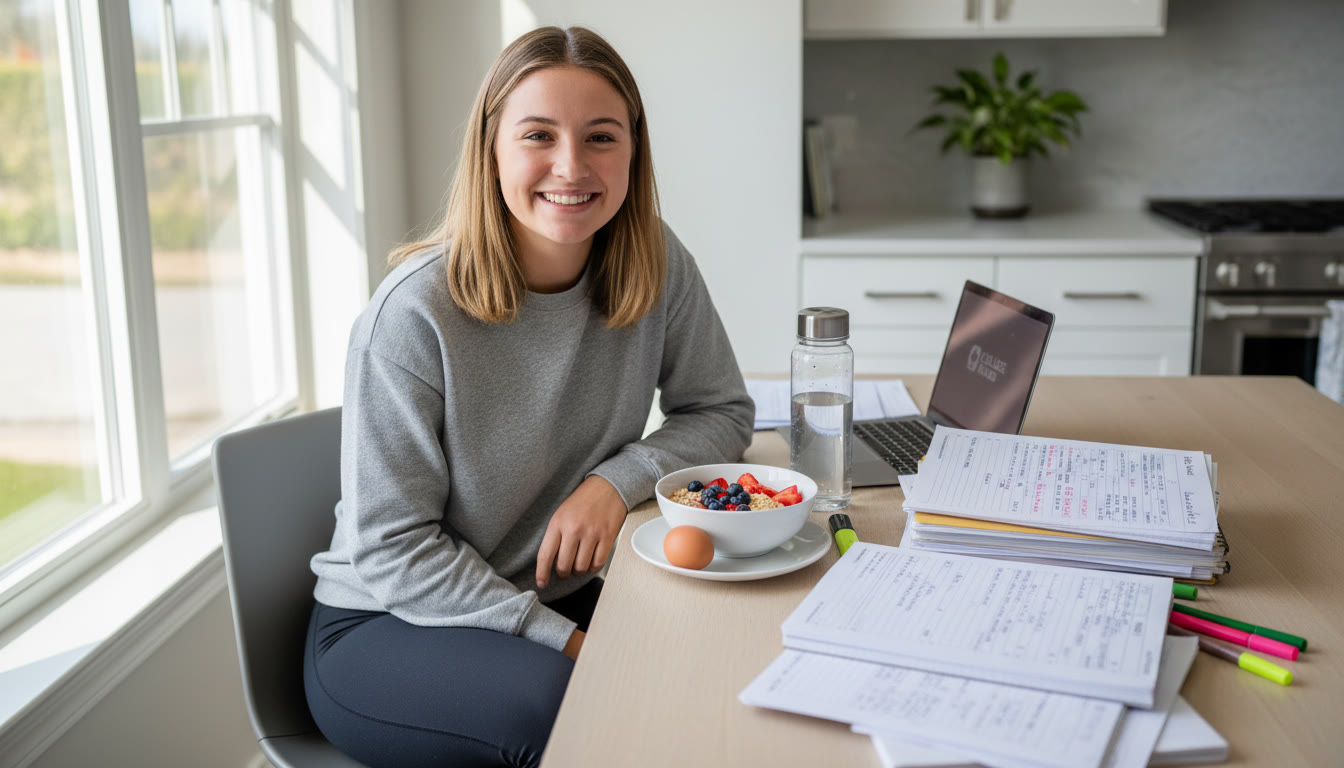
The physiology in plain language
Your brain makes up only about 2% of your body weight but uses around 20% of the body’s energy at rest — primarily glucose. When blood sugar drops quickly, you’ll notice it as distraction, irritability, or slower thinking. Caffeine, in moderation, can enhance alertness, but too much can cause jitters or a crash later. Hydration affects blood volume and circulation: mild dehydration can cause headaches, fatigue, and decreased cognitive performance. Digestive processes also matter — a heavy or greasy meal can divert blood flow away from the brain toward digestion and leave you sluggish.
College Board Rules to Keep in Mind
Before planning snacks and water stashes, know the testing rules. Students are not allowed to bring food or drinks into the testing room. Many AP exams have a scheduled short break between sections; with the proctor’s permission, students can leave the room to get a drink or a quick snack. If you have approved accommodations, different rules may apply. Work with your AP coordinator well before test day so your feeding strategy aligns with College Board policies.
Practical takeaway
- Plan meals around the testing schedule, not during it — unless you will be taking advantage of the break.
- Confirm break timings for your specific exam format and whether your testing site allows leaving the room.
- If you have testing accommodations, coordinate with the Services for Students with Disabilities office in advance.
Morning of the Exam: Eat for Endurance (Not a Sugar Spike)
Your pre-exam morning meal should sit comfortably in your stomach, provide steady energy, and keep anxiety in check. Think of this meal as a slow-release power source for your brain — a combination of complex carbs, protein, healthy fats, and a little produce for vitamins and micronutrients.
Sample breakfast combos
- Oatmeal with sliced banana, a spoonful of nut butter, and a sprinkle of chia seeds.
- Whole-grain toast topped with mashed avocado and a poached egg; a few berries on the side.
- Greek yogurt (or plant-based alternative) with granola, mixed berries, and a handful of nuts.
- A breakfast wrap: whole-wheat tortilla, scrambled eggs or tofu, spinach, and a small amount of cheese or hummus.
These combinations blend carbohydrates that release glucose gradually with protein and fat to stabilize blood sugar. Avoid heavy fried foods, very high-sugar cereals, or anything unfamiliar that could upset your stomach.
Snacks for Breaks: Quick, Clean Energy
If your exam schedule includes a break and you’re allowed to leave the room briefly, snacks can be a game-changer. The key is to choose items that restore blood sugar without causing a later crash or bloating.
Best snack choices for a short break
- Banana or apple with a small packet of nut butter — easy, portable, and balanced.
- Trail mix with unsalted nuts, seeds, and a few dried fruits — not too sugary.
- A small yogurt cup (if you tolerate dairy) or a lactose-free yogurt alternative.
- Whole-grain crackers with a slice of cheese or hummus portion pack.
Keep portions modest. The goal is a gentle top-up, not a full meal that could make you sleepy.

Hydration Strategy: Sip, Don’t Chug
Hydration is subtle but powerful. Start your day with a glass of water, and then maintain regular sipping throughout the morning. Drinking too much right before the exam might mean more frequent bathroom trips; too little and you risk mild dehydration symptoms.
Hydration quick rules
- Drink 12–16 ounces (350–475 mL) of water when you wake up.
- Sip 4–8 ounces (120–240 mL) every 30–45 minutes leading up to the test.
- Avoid gulping 32 ounces right before entering the testing room — plan restroom visits ahead of time.
- Electrolyte drinks: reserve these for very long days or if you’re prone to excessive sweating. Choose low-sugar options.
Remember that caffeine draws water out of your system; if you have coffee in the morning, balance it with water. Caffeine can be helpful for alertness, but stick to a moderate dose (equivalent to one small cup of coffee) and avoid trying new energy drinks on test day.
Meals Between Multiple Exams: Timing and Composition
Some students take more than one AP exam in a day. That requires planning so you’re still sharp for the second sitting. The meal between exams should be light, nutritious, and easy to digest.
Between-exam meal template
- Lean protein (grilled chicken, turkey, tofu, or Greek yogurt) — 15–25 grams.
- Complex carbohydrate (brown rice, quinoa, whole-grain wrap, or sweet potato) for steady energy.
- Vegetables or fruit for fiber and vitamins — choose easy-to-eat items like carrot sticks or a piece of fruit.
For example: a turkey and avocado whole-grain wrap with baby carrots, or a small quinoa bowl with roasted vegetables and chickpeas. Keep the portion moderate — too large and you risk post-meal drowsiness.
What to Avoid Before and During Exam Days
We’re all curious which foods will secretly sabotage our test scores. The short list below keeps the focus on alertness and comfort.
- High-sugar snacks and drinks that spike glucose quickly and then crash.
- Greasy, fried, or very heavy meals that divert energy to digestion.
- Large quantities of caffeine or new stimulants (energy drinks, unfamiliar supplements).
- Exotic or spicy foods that might cause digestive upset.
Stress Eating and Emotional Management
Stress can cause cravings for sweets or carbs. That’s normal — your body seeks quick energy when stressed. Mindful strategies can help:
- Practice a brief breathing exercise before grabbing a snack: inhale for 4 seconds, hold 4, exhale 6 — this reduces immediate stress-driven impulses.
- Pack controlled portions of comfort foods so you’re not overeating in the moment.
- Use small rituals to soothe nerves: a slow sip of water, a quick walk outside, or a 60-second stretch before going back in.
Table: Quick Reference — What to Eat and When
| Time | What to Eat/Drink | Why It Works |
|---|---|---|
| 2–3 hours before exam | Balanced meal: complex carbs + protein + healthy fat (e.g., oatmeal + egg + fruit) | Provides steady glucose and prevents hunger during the test |
| 30–60 minutes before exam | Small snack if needed: banana or handful of nuts; sip water | Prevents lightheadedness without causing fullness |
| During break (if allowed) | Banana, nut butter packet, small yogurt, water or low-sugar electrolyte drink | Quick energy boost and rehydration without stomach discomfort |
| Between multiple exams | Light meal: wrap, salad with protein, or grain bowl; hydrate moderately | Refuels and restores without causing post-meal sluggishness |
| After exams | Balanced recovery meal and plenty of fluids; include vegetables | Replenishes nutrients and supports recovery |
Practical Packing and Timing Tips
Because you can’t bring food into the testing room, planning is essential. Pack snacks in a small clear pouch and keep them in your backpack or car. Time your bathroom breaks and hydration so you’re comfortable but not distracted.
- Label your items and keep them in a clear plastic bag for quick inspection if required by the testing site.
- Bring a reusable water bottle and fill it before the day starts, then refill as needed between exams.
- Prepare familiar foods — test day is not the time to try new brands or dishes.
- Check your testing center’s schedule and coordinate bathroom and snack breaks with the time windows allowed.
Special Considerations: Food Allergies and Accommodations
If you have allergies, dietary restrictions, or medical needs (including diabetes), contact your school’s AP coordinator and the College Board well in advance. Approved accommodations can allow specific food or drink access during the testing session. Don’t wait until the last minute — the accommodation process can take time.
Tips for students with medical needs
- Keep a copy of your accommodation letter or medical documentation with your coordinator.
- Bring clearly labeled medications or glucose tablets as required; make sure staff know where they are stored.
- Practice your timing in a mock test to ensure your routine works under test conditions.
Mental Strategies to Pair with Nutrition
Food and water are foundational, but pairing them with mental strategies amplifies results. Use short mindfulness practices, light movement, and cognitive rituals to keep your headspace steady.
Simple mental hygiene during long exams
- Micro-break breathing: close your eyes for 15 seconds, breathe slow and steady, then refocus on the first sentence of the prompt.
- Chunking: break long sections into smaller time blocks and give yourself brief, mental checkpoints.
- Anchor phrase: pick a short, calming line you can repeat under your breath if anxiety spikes (e.g., “One step at a time”).
Real-World Example: How One Student Structured a Two-Exam Day
Sam, a junior, had AP Calculus AB at 8 a.m. and AP Spanish Language at 1 p.m. He followed a plan: a breakfast of whole-grain toast, scrambled eggs, and orange slices at 6:30 a.m.; sipped water en route; ate a banana and a small packet of almonds during the break after his first exam; then a light quinoa salad with chickpeas and a yogurt before the second exam. He avoided energy drinks and felt consistently alert without stomach discomfort. Sam had practiced this schedule during a mock test day and adjusted portion sizes until they felt right.
How Tutoring Can Support Your Nutrition and Timing Plan
One often overlooked benefit of working with a tutor is the personalized planning around test-day logistics, including food and hydration. Tutors who understand your exam schedule, stamina, and personal needs can help practice strategies under realistic conditions. Sparkl’s personalized tutoring offers 1-on-1 guidance and tailored study plans that include test-day routines, not just content review. They can help you build a rehearsal schedule that includes meal timing, break practice, and simulated test days so you enter AP exam day calm and confident.
Quick Checklist: The Night Before and the Morning Of
- Night before: prepare breakfast and snack pack; set out comfortable clothing; confirm testing materials and ID; go to bed early.
- Morning of: eat a balanced breakfast, hydrate, avoid new foods or large amounts of caffeine, and practice a 5-minute breathing or visualization routine.
- During breaks: stick to planned snacks, hydrate moderately, and avoid overly stimulating conversations or social media that may spike anxiety.
Final Notes: Practice, Personalize, and Keep It Simple
There’s no single perfect diet for every student. The winning approach is personalized: try a few strategies during practice exams, note how your body responds, and then choose the plan that keeps you calm, alert, and comfortable. Keep meals simple, hydrate consistently, and avoid extremes. When combined with focused study and the right mental strategies, good nutrition and hydration become quiet but powerful allies on test day.
Parting encouragement
AP exams ask your brain to perform under pressure. Treat your body like part of your exam prep team. Small choices — a balanced breakfast, a well-timed banana, a steady sip of water — add up to clearer thinking and steadier nerves. You’ve earned this: fuel smart, stay calm, and show up ready to do your best.
If you’d like help designing a personalized exam-day plan that fits your schedule, appetite, and testing format, consider building it into your practice sessions with a tutor who can guide the whole routine from nutrition to pacing. With a little rehearsal, your energy and focus will be one less worry on the big day.


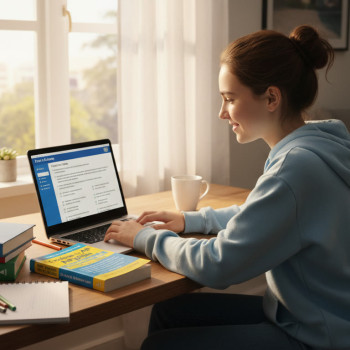
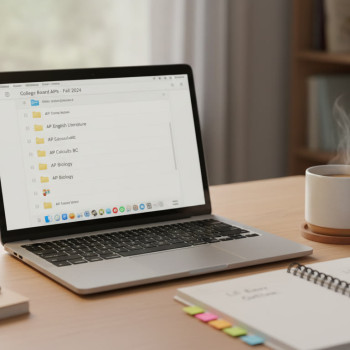

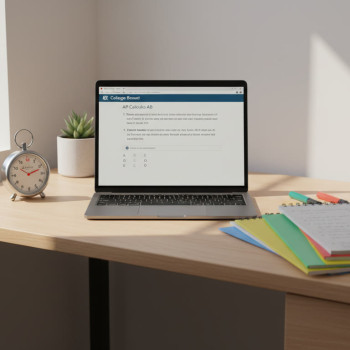
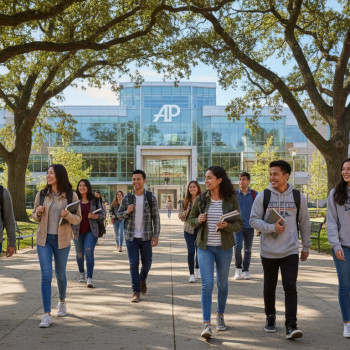








No Comments
Leave a comment Cancel